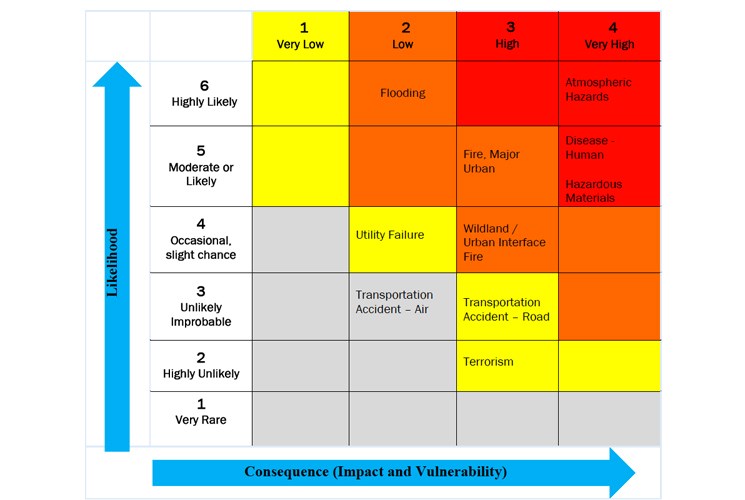The City of Prince George updated its emergency risk assessment document in time for national Emergency Preparedness Week, which starts on Sunday.
On Monday, city staff presented the updated Hazard Risk and Vulnerability Assessment to city council. The last update of the document was in 2009, prior to the COVID-19 pandemic, the deadly 2012 Lakeland Mills fire, multiple flooding events on the Fraser and Nechako rivers, and the 2018 wildfires that forced the evacuation of thousands of people across north-central B.C.
"We felt with all the local, provincial and regional emergencies we've faced in the recent past, and in our history, we could make the document a little more specific to Prince George," city emergency programs manager Clay Sheen said. "The old document had a look across Canada as far back as the 1900s, which is an amazing data set, but with so many emergencies close to home, we thought we could get something a little better."
The assessment looked at all the potential emergencies the city could face, and ranked them based on likelihood and the potential impact on the community, he said.
Atmospheric hazards such as snow storms, wind storms, heat waves, cold snaps and other dangerous weather topped the city's risk list – being both highly likely, and with very high potential impact on the community.
Flooding, human disease, industrial fires, wildfires and hazardous material spills also ranked high on the list of risks to the city.
Sheen's report also include a look at the potential emergencies facing the city over the coming months.
"Flooding is a yearly occurrence here in Prince George, however our community except for a couple neighbourhoods is quite resilient," Sheen wrote in his report to council. "The Provincial River Forecast Centre anticipates an El Nina spring with cooler and wetter temperatures. Snow pack is above normal (132 & 122% of normal for this time of year for the Upper West and East Fraser Regions that flow into PG) in watersheds in our locality. We are not anticipating any significant flooding unless heavy rains or excessive heat occurs in the month of May/June."
Some weather projections are also predicting a drier summer this year, which could result in a dangerous season for wildfires.
All Prince George residents should have an emergency kit with food, water and other supplies to survive 72 hours without help in an emergency, Sheen said.
"Let's keep our fingers crossed we don't have any issues this spring and summer," Mayor Lyn Hall said.


